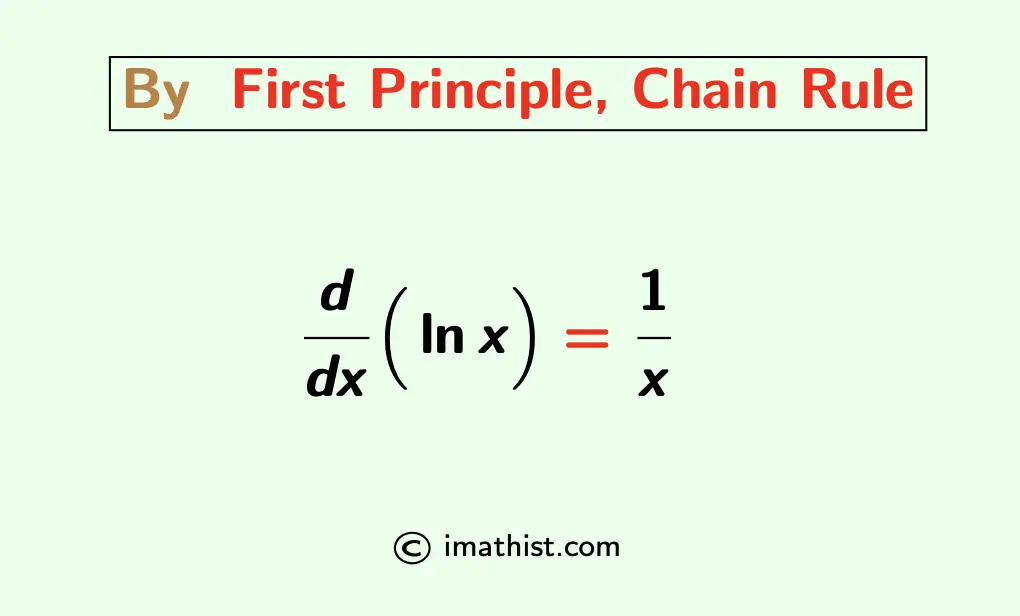The derivative of lnx is equal to 1/x. Ln(x) denotes the natural logarithm of x, that is, lnx= logex. Here we will find the derivative of ln(x) using the limit definition and chain rule of differentiation.
Note that lnx= logex. The derivative of lnx is denoted by d/dx(lnx), and its formula is given as follows:
$\dfrac{d}{dx}(\ln x)=\dfrac{1}{x}$.

Find the Derivative of lnx
| Answer: The derivative of lnx is 1/x. |
Explanation:
Let z= lnx
⇒ z = logex
⇒ ez = x
Differentiating both sides we get
$e^z \dfrac{dz}{dx}=1$, obtained by the chain rule.
⇒ $e^{\ln x} \dfrac{dz}{dx}=1$
⇒ $x \dfrac{dz}{dx}=1$ as we know elnx =x.
⇒ $\dfrac{dz}{dx}=\dfrac{1}{x}$
That is, $\dfrac{d}{dx}(\ln x)=\dfrac{1}{x}$.
Therefore, the derivative of lnx is equal to 1/x, and this is obtained by the chain rule of differentiation.
Also Read:
Derivative of lnx by First Principle
Let us recall the first principle of derivatives.
| The derivative of a function f(x) by first principle is given by the following limit formula: $f'(x)$ = limh→0 $\dfrac{f(x+h)-f(x)}{h}$. |
Put f(x) = lnx.
So (lnx)$’$ = limh→0 $\dfrac{\ln (x+h)-\ln (x)}{h}$
= limh→0 $\dfrac{\ln \Big(\dfrac{x+h}{x} \Big)}{h}$, by the difference rule of logarithms.
= limh→0 $\dfrac{\ln \Big(1+\dfrac{h}{x} \Big)}{h}$
| Let h/x = z, so that z→0 when h→0. Also, h=zx. |
= limz→0 $\dfrac{\ln \big(1+z \big)}{zx}$
= $\dfrac{1}{x}$ limz→0 $\dfrac{\ln \big(1+z \big)}{z}$
= $\dfrac{1}{x} \times 1$, using the limit formula: limx→0 ln(1+x)/x =1.
= 1/x.
So the derivative of lnx by first principle is equal to 1/x.
More Reading:
FAQs
Q1: What is the derivative of ln x?
Answer: The derivative of ln x is equal to 1/x.
Q2: If y=lnx, then find dy/dx.
Answer: If y=lnx, then dy/dx =1/x.